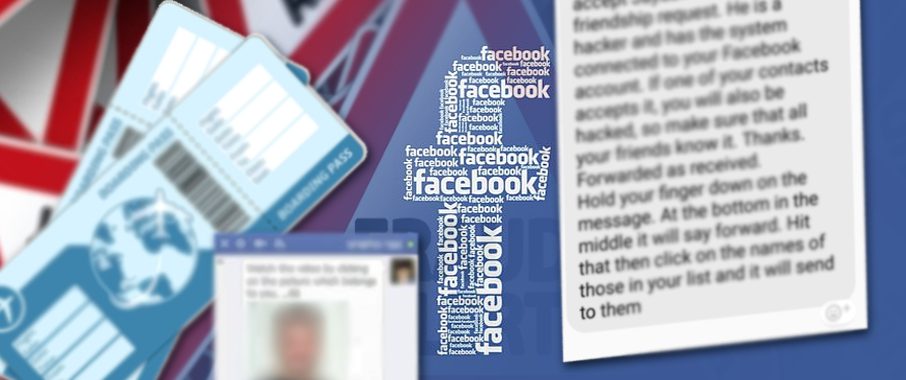Nothing new: the same old deception techniques
Though the majority of Facebook netizens originate from modernized countries, they remain easy targets for scammers. Regarding the scam rate, several scams in a row have shaken the Facebook community. Surprisingly, crooks are targeting netizens with the same old tricks: Facebook video virus, Facebook Message scam, free flight tickets giveaway, etc. Why do users keep falling for them?
Observing recent Facebook scams, it seemed unbelievable that fraudsters expected to fool netizens with the same tricks. Unfortunately, they did. One of the most recent deceptions evolved around Facebook video virus.
You might recall that the same story happened last year. Users received a message with the video link which included their profile picture and name. Once they clicked on the supposed YouTube video, they were asked to install a shady browser extension to watch the video.
This year, crooks employ alternative “material” – a corrupted file.
This version of scam is currently spread in North Wales, but taking into account that users fell for the same trick twice or even thrice, the infection might soon disperse to other virtual regions.
Jayden K. Smith wants to be friends with you
Lately, some of your friends might have been posting warnings not to accept the friend request from mysterious Jayden K. Smith. He is said to be a mysterious hacker, who is able to hack your account the very moment you befriend him. The message might seem quite an ordinary warning except that it is another scam.
If you have seen several of them, you might recall that the content of the text does not differ, except the names. Other intimidating “hackers” are Anwar Jitou, Maggie from Sweden, Bobby Roberts, Simon Ashton, and many others.
Unfortunately, Facebook community members have good reflexes sharing things and clicking “Like” button without even giving a thought. Though in this case, this scam did not result in any financial losses, in overall, scam amounts for 50 million dollars.
Other recent scans were not so harmless. Fraudsters released fake posts supposedly published by well-known flight airline companies offering free airline tickets. The posts quickly went viral which turned out to be an expected surprise for the very companies. However, much more bothersome malware disguised under these threats.
Best advice? Think before sharing a post
As in everyday life, an action should follow the thought. No matter how powerful anti-virus you may have, if you tend to surf Facebook clicking here and there mindlessly, you mind end up as a scam victim either.
Naturally, no one enjoys the role of a loser. Thus, double-check the content you receive or confirm the authenticity of the fact you are about to share. Likewise, Facebook might become a safer place.

